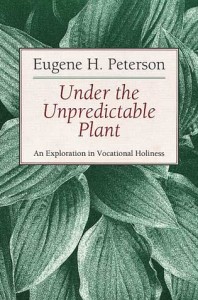The deployment of human resources in a large institution like the Anglican Church of Canada can be extremely difficult. In many ways the church, like any institution, sends new recruits out to smaller postings until they have obtained an adequate amount of experience and seniority. It is at that time that clergy begin the journey back to cities and larger parishes.
In conjunction with this traditional practice is the assumption that clergy are not supposed to stay in one place for too long. Most clergy spend 5-10 years at a posting before being moved along to another parish. I have heard many reasons for this, but none have ever struck me as particular valid or insightful.
In both cases the career track of the clergy seems to take precedence and be more important than an exercise in discernment. In many ways the clergy of the church are on a journey to Tarshish.
“I have done all I can do here, put my programs in place, it is time to move on.”
“I have been here for 5 years (or ten or fifteen for that matter), I need a change of scenery, new challenges and a better parish.”
“I see my time here as temporary. I’m planning to move soon.”
What is common amongst the above example is the amount of “I” statements, which I find to be incredibly ironic since we are called by God to serve. Caught in the western consumer mindset we have forgotten what vocational holiness looks like and instead have centered our call on a career in the church.
Would it not be better to ponder whether God has called us to that little country parish instead of a big city parish, or He wants us to stay in one place for 20 years because we may have done all we want, but we haven’t yet accomplished what God wants from us in that place?
It may not be pretty and it certainly is not easy, but vocational discernment is a necessity for ordained ministry. We go where we are called, whether that is Tarshish or Nineveh.
As a side note, a truly great book on discerning vocational holiness is “Under the Unpredictable Plant”, by Eugene Peterson.

